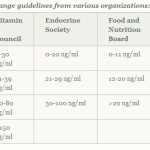For many years scientists have been astounded by manganese as there are many varied effects for its deficiency and toxicity. The name, originating from the Greek word for magic, matches these characteristics of manganese. Our bodies can produce manganese at levels below the recommended dietary intake or RDI. We supplement from food but research indicates that 37% of Americans still do not have the RDI of manganese [1,2].
Manganese deficiency has versatile effects. Some of them include infertility, bone malformation, weakness, and even seizures. When the RDI of manganese is adhered to however, there are many benefits, one of which is bone development. This is especially important for older women with osteoporosis and people with arthritis. In order to form healthy cartilage and bone, a certain group of enzymes is needed. People with osteoporosis and arthritis lack a working group of them due to decreased manganese levels. The mineral is a vital compound for their activities. When the enzymes are working correctly, they can create compounds that contribute to bone and cartilage structure [1].
Manganese is also very important for neurological health. It is a component of the antioxidant enzyme: superoxide dismutase or SOD which helps fight free radicals. Free radicals are highly unstable compounds that do occur naturally in the body but can cause damage. By fighting off free radicals in the neural pathways, brain health is maintained. Manganese can also bind with neurotransmitters which are chemicals that send signals from one nerve cell to another which contain important information for the cells to function. By doing this, manganese helps send the signals faster and more efficiently, aiding in cognitive functions [1,3].
The most important benefit of manganese though is metabolism. Metabolism is a series of very crucial chemical process involving the breaking down of chemicals and the building up of chemicals. Without metabolism we would not be alive [4,5]. The production of glucose is dependent on two enzymes which need manganese to work. When amino acids are produced one of the waste products must be expelled from the body through the liver. To do so the liver needs a manganese-activated enzyme. The creation of cholesterols used to create hormones like testosterone is also dependent on the same kind of enzymes. [1,3].
Generally, manganese is useful for digestive health and absorption of vitamins like vitamin B and E. It is also useful for absorption of minerals like magnesium. Other benefits include alleviation of menstrual symptoms, thyroid health, and wound healing. It is quite easy to get the RDI of manganese in your diet. Green vegetables, brown rice, coconuts, almonds, and hazelnuts are the best sources. Other sources include berries, tropical fruits, turmeric, tofu, and peppermint. You can also get the daily value of manganese necessary from the Morning Formula of Balanced Trio which is safe and effective [1,3].
References:
[1] Manganese. Linus Pauling Institute. http://lpi.oregonstate.edu/mic/minerals/manganese
[2] Manganese. University of Maryland Medical Center. http://umm.edu/health/medical/altmed/supplement/manganese
[3] Health Benefits of Manganese. Organic Facts. https://www.organicfacts.net/health-benefits/minerals/health-benefits-of-manganese.html
[4] What is Metabolism. News-Medical. http://www.news-medical.net/health/What-is-Metabolism.aspx
[5] Metabolic Disorders. MedlinePlus. http://www.nlm.nih.gov/medlineplus/metabolicdisorders.html
You May Also Like:
Tiffany Zhu
Latest posts by Tiffany Zhu (see all)
- The Role of Vitamin B6 In the Body - August 21, 2015
- Manganese: An Essential Trace Mineral - July 25, 2015
- What to Eat For Dry or Damaged Skin - July 4, 2015







